Do you wish that you had some English vocabulary to sound smarter? Well, that’s exactly what I’m going to share with you in this article. You’re going to get the top 15 C1 words that you can add to your vocabulary to sound smarter.
Are you ready to learn some English vocabulary to sound smarter? You’re going to learn 15 C1 Vocabulary words. So, make sure you get out a pen, or piece of paper, and take notes because that’s what smart students do, right?
List of 15 C1 Vocabulary Words:
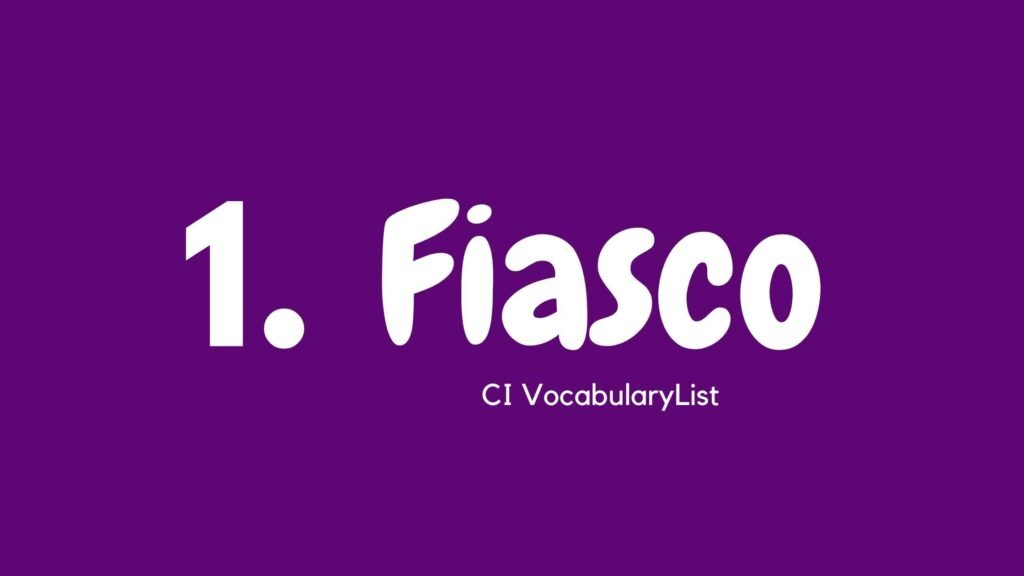
1. Fiasco
Word Form: Noun
Pronunciation: /fɪˈaskəʊ/
Meaning: It means a complete failure or collapse.
Now you describe something as a fiasco.
For example: The conference was a complete fiasco.
It’s an everyday word. Fiasco instantly makes you sound smarter.
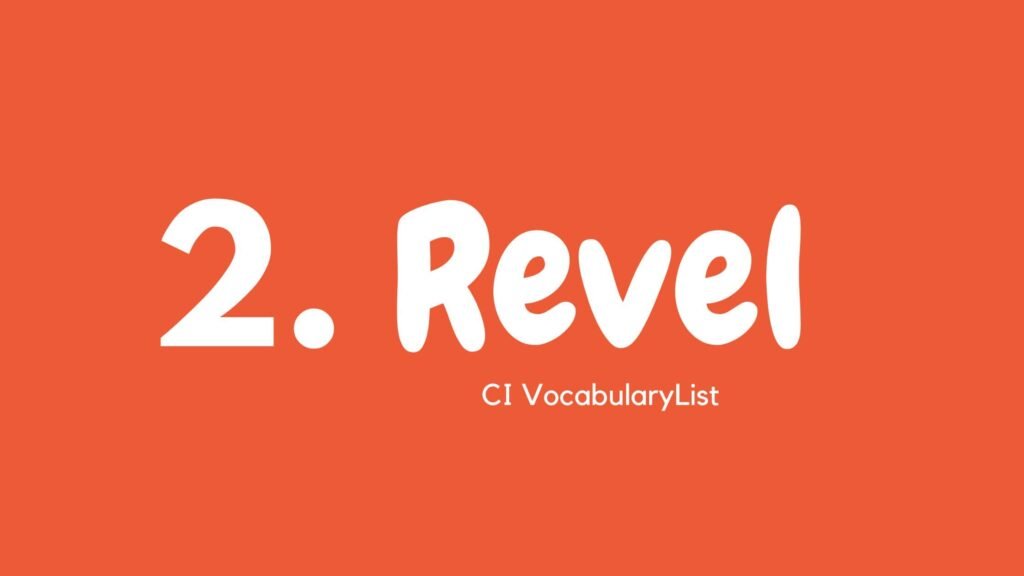
2. Revel
Word Form: Phrasal Verb
Pronunciation: ˈrɛvl/
Meaning: to really enjoy something, and take pleasure in something.
For example, He reveled in his new promotion (which means he really enjoyed his new promotion and took a lot of pleasure from it.)
Now just an important note. Don’t confuse the pronunciation with the very common word reveal.
We’re talking about revel not reveal. Notice: the difference in the vowel sound. This is a short sound “Uh” (Revel) Long sound is revealed.
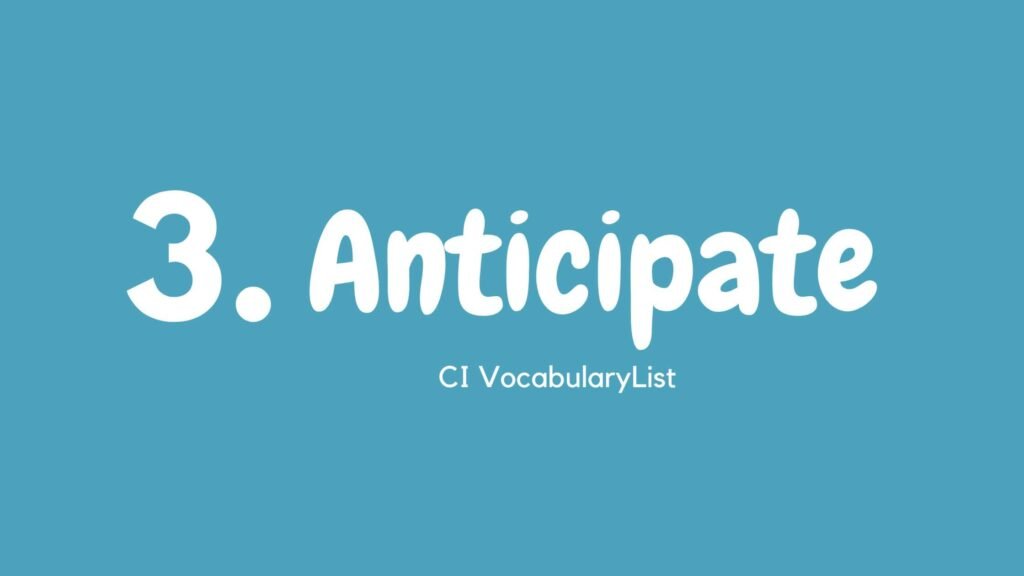
3. Anticipate
Word Form: Verb
Pronunciation: /anˈtɪsɪpeɪt/
Meaning: it’s used when something is likely, or probable.
For example: We’re not anticipating any problems tonight. (So it’s simply saying we’re not expecting, problems are not likely, or probable)
Now remember this is a verb, so notice the verb tense. We’re not anticipating any problems tonight. This is in the present continuous. It’s simply negative, but in the present continuous.
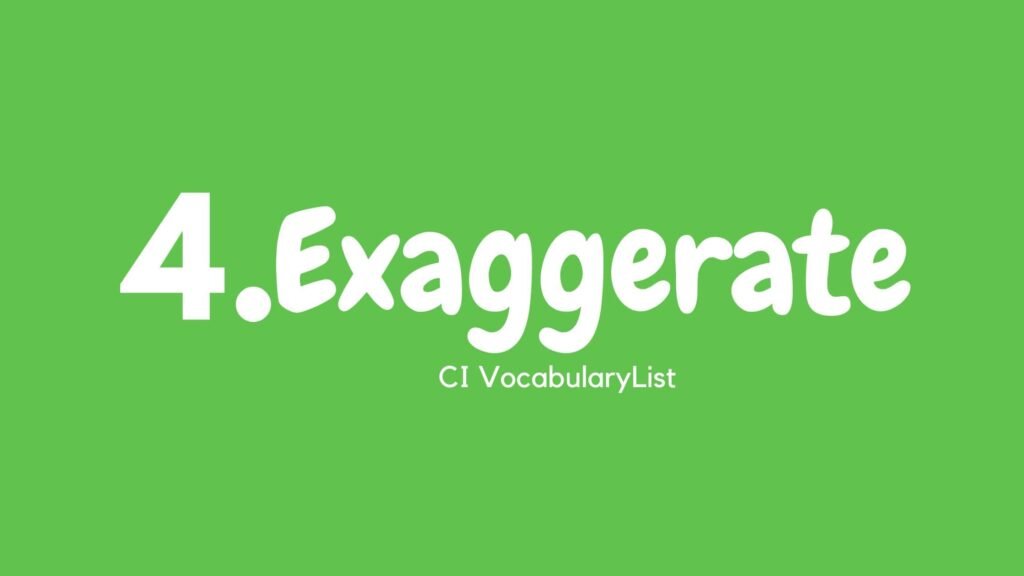
4. Exaggerate
Word Form: Verb
Pronunciation: ɪɡˈzadʒəreɪt
Meaning: this is when you make something seem larger, more important, better, or even worse than it actually is.
For example: A lot of people do this with their problems. They might have a problem that’s like this. But then they exaggerate it, and they make the problem sound like this: “They exaggerate”
Another example: I could say, that was the best meal I’ve ever had. I’m not exaggerating. ( So notice I’m using this in the negative to say, I’m not making it better than it actually is. It is that good in reality.)
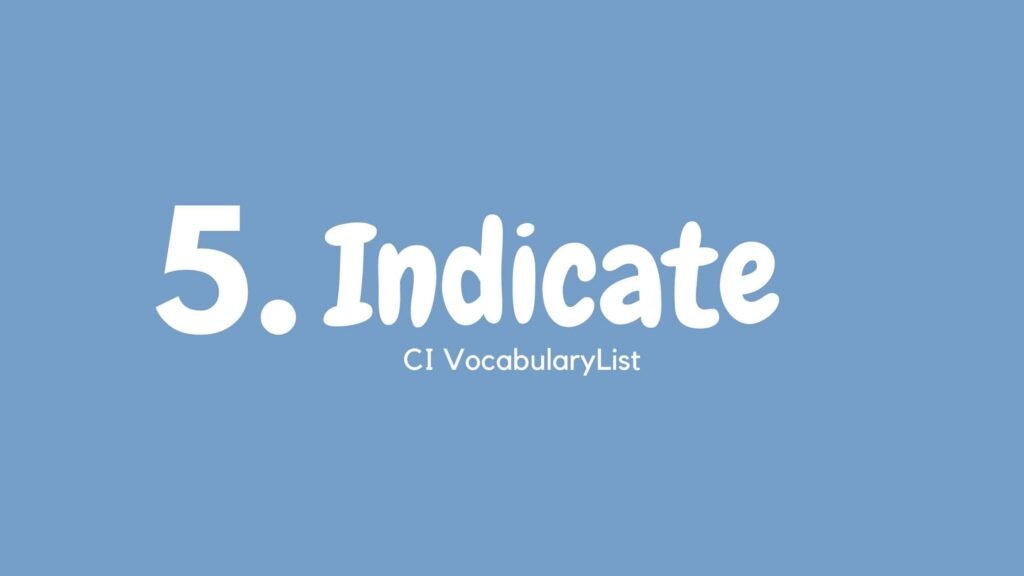
5. Indicate
Word Form: Verb
Pronunciation: /ˈɪndɪkeɪt/
Meaning: when you make something clear, or you simply show something. (We use this a lot in research studies and reports)
For example: The study indicated that the cost of gold is increasing.
So this is just a smarter way to say, that the study showed that the cost of gold is increasing.
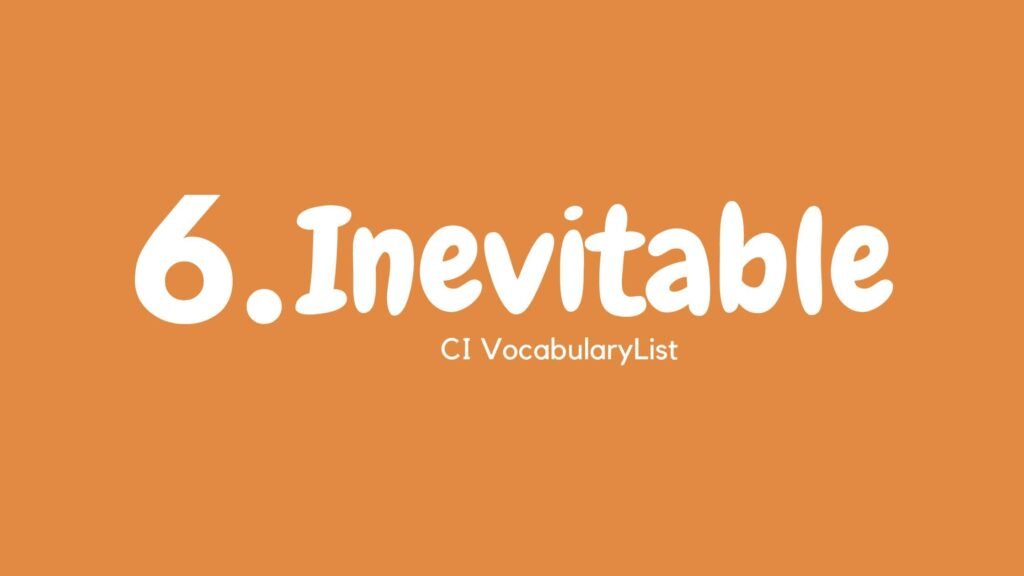
6. Inevitable
Word Form: Adjective
Pronunciation: /ɪnˈɛvɪtəb(ə)l/
Meaning: when something is certain to happen. So 99.9% going to happen.
For example: If you keep eating fast food, a heart attack is inevitable.
Note: Now we generally use this with negative outcomes.

7. Intend
Word Form: Verb
Pronunciation: /ɪnˈtɛnd/
Meaning: it’s used when you have a plan or a purpose.
For example: I didn’t intend to hurt your feelings. ( That wasn’t my plan. That wasn’t my purpose. I didn’t intend to hurt your feelings).
Note: We commonly use this in the negative to say we don’t have a plan or purpose.
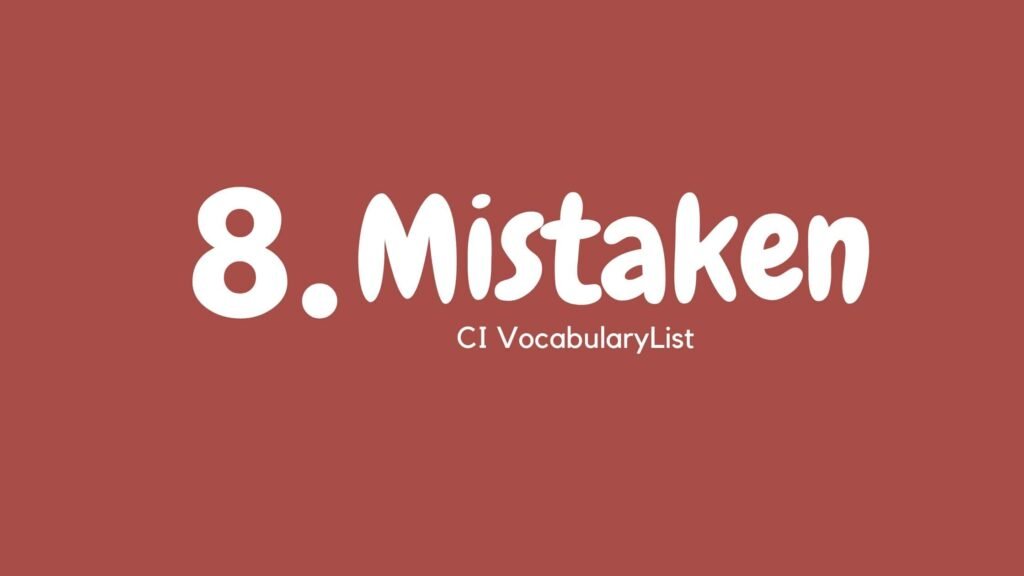
8. Mistaken
Word Form: Adjective
Pronunciation: /mɪˈsteɪk(ə)n/
Meaning: when you’re simply wrong: You’re wrong in opinion or judgment
For example: I thought the conference started at nine, but I was mistaken. (means: I thought the conference started at nine. But I was wrong).
“Just that one small change will instantly make you sound smarter”
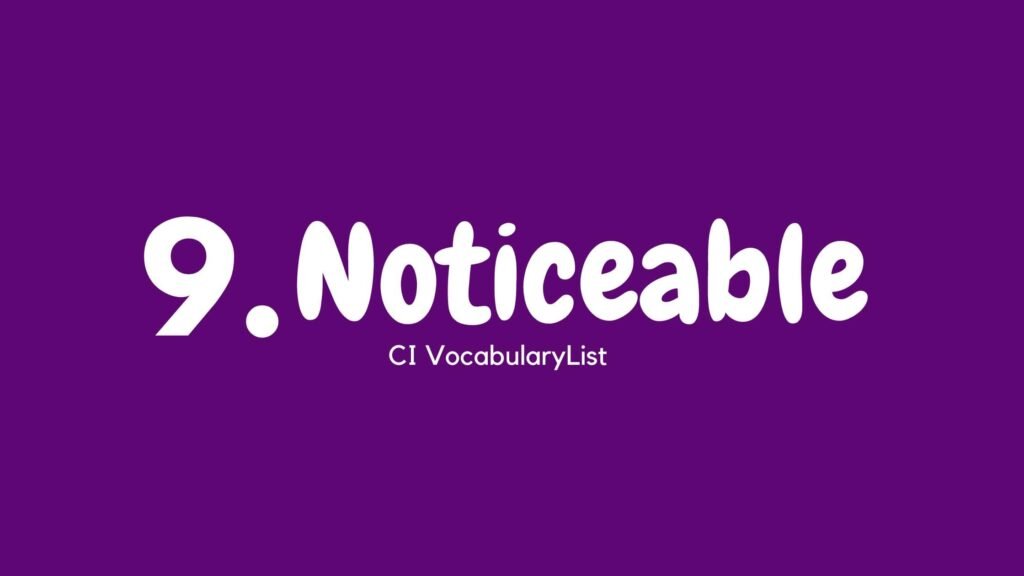
9. Noticeable
Word Form: Adjective
Pronunciation: /ˈnəʊtɪsəbl/
Meaning: when something is easy to see, or recognize
For example:
If I say: there’s an improvement in your speaking skills.
Now improvement is a noun. So I can modify our noun with our adjective noticeable and say, there’s a noticeable improvement in your speaking skills.
It makes your sentence more complex. and it makes the improvement sound better because it’s easy to see or recognize.
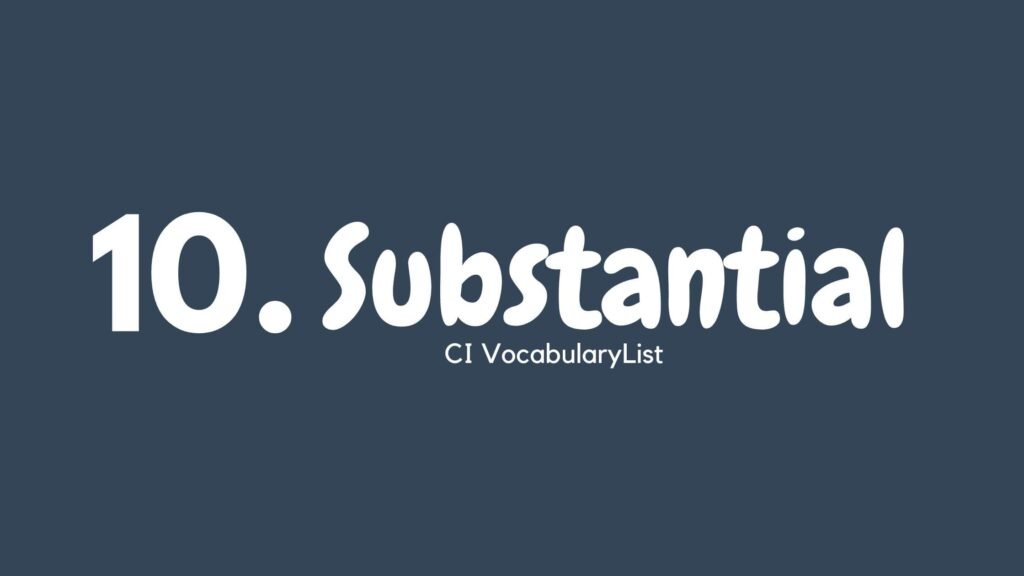
10. Substantial
Word Form: Adjective
Pronunciation: /səbˈstanʃl/
Meaning: this means large in size value or worth.
For example: her promotion was substantial (It was large, in value, or in worth).
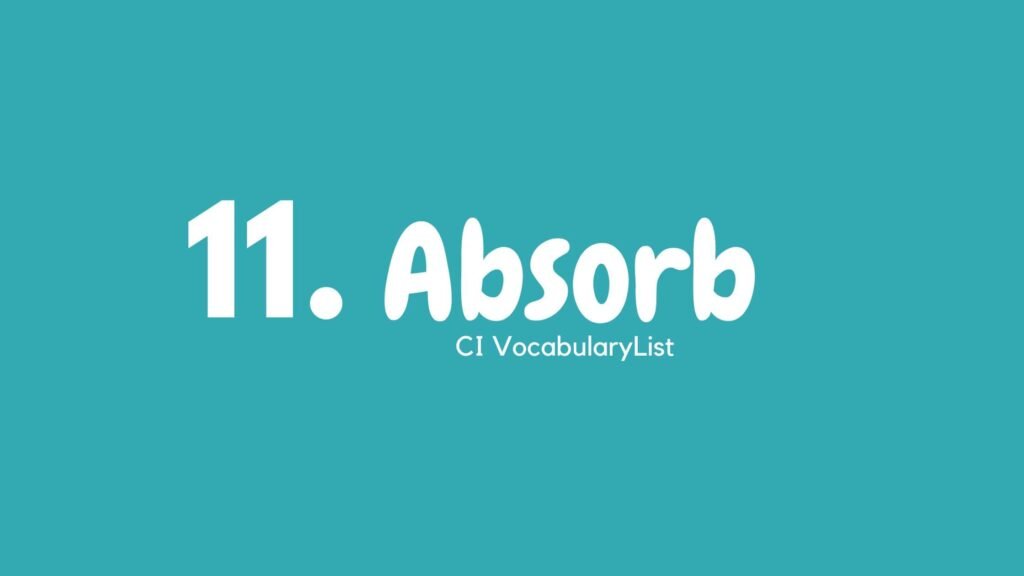
11. Absorb
Word Form: Verb
Pronunciation: /əbˈzɔːb/
Meaning: You need this one because when you absorb information, it means you understand it fully.
For example: when you start a new job, you might say, there’s so much information to absorb.
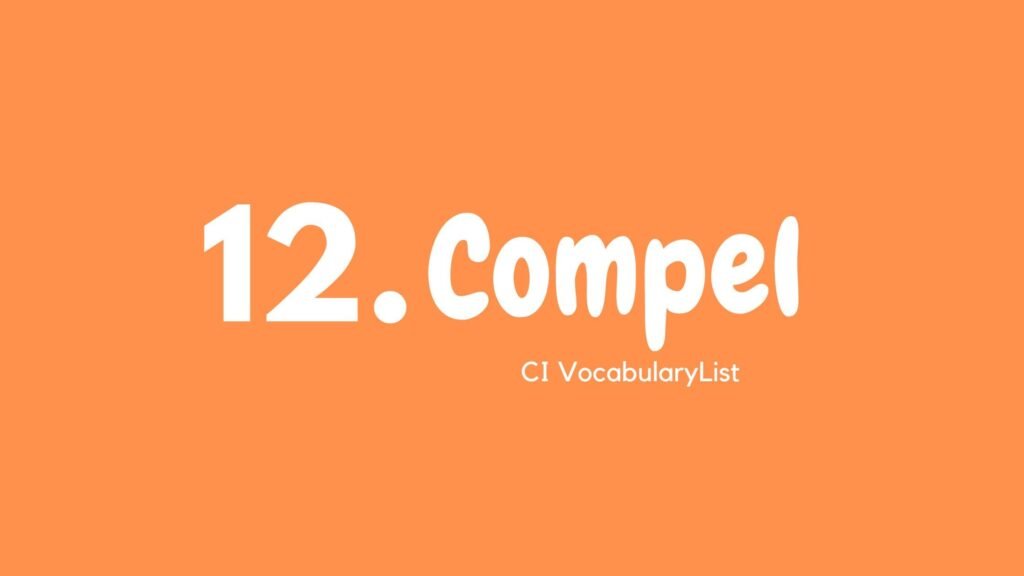
12. Compel
Word Form: Verb
Pronunciation: /kəmˈpɛl/
Meaning: It means to force someone to do something.
For example: He was compelled to wear a suit to work.
This means he didn’t want to wear a suit, somebody, most likely his boss or the company as a whole, forced him. They compelled him to wear a suit.
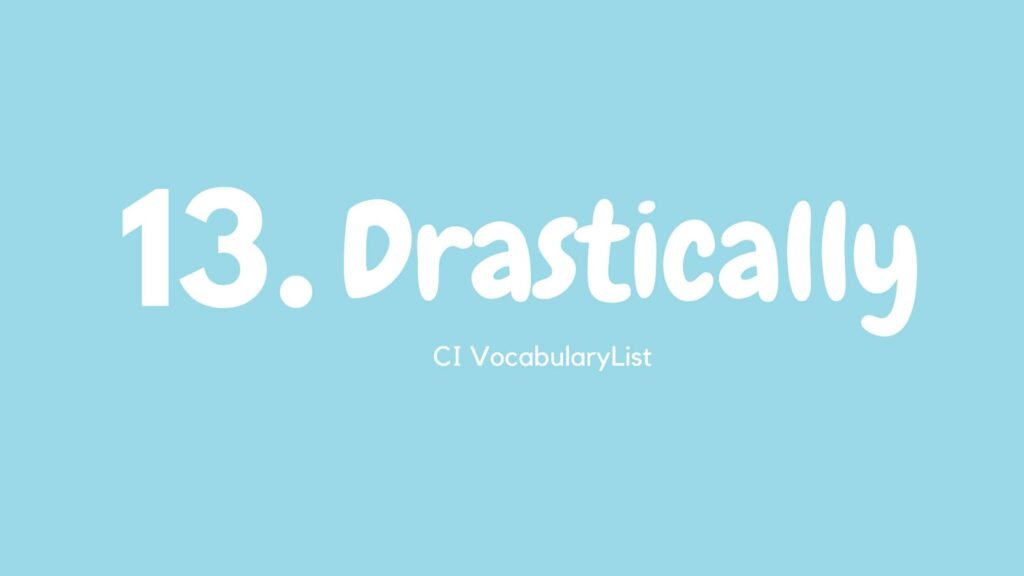
13. Drastically
Word Form: Adverb
Pronunciation: /ˈdrastɪkli,ˈdrɑːstɪkli/
Meaning: when something happens drastically, it’s in a severe and sudden way.
For example: everyone’s daily routine was drastically changed in 2020.
Another example: We went from going out every day to staying home every day. Our routines changed drastically.
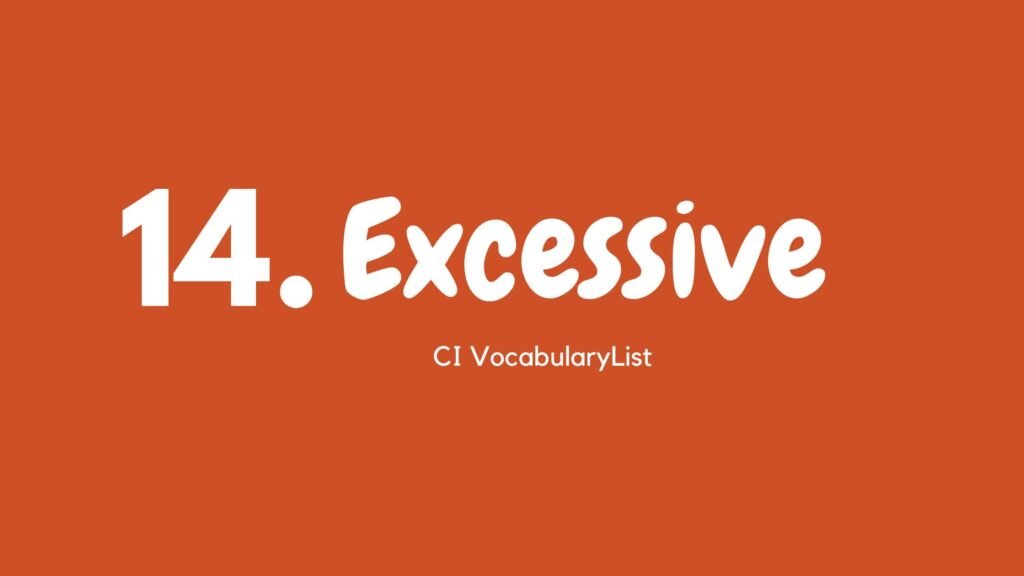
14. Excessive
Word Form: Adjective
Pronunciation: /ɪkˈsɛsɪv,ɛkˈsɛsɪv/
Meaning: it means too much
For example, The amount of sugar in processed food is excessive. It’s too much.
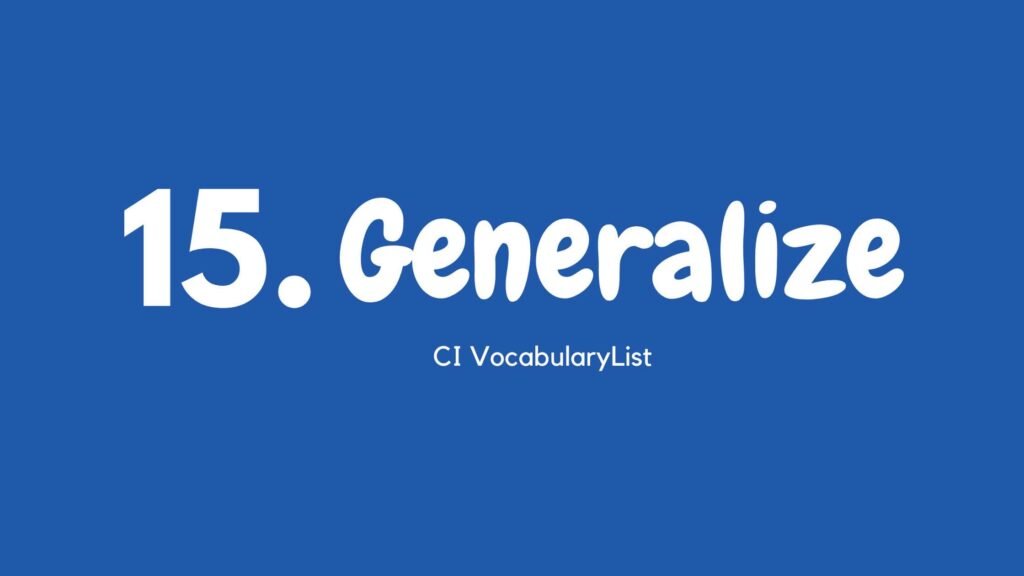
15. Generalize
Word Form: Verb
Pronunciation: /ˈdʒɛn(ə)rəlʌɪz/
Meaning: it’s used when you say something is true all the time when in reality, it isn’t. It’s only true some of the time, perhaps.
For example: Many people say that Canada is cold all the time. You can’t generalize about the climate in Canada. We have a very diverse climate. It can get really hot, and it can also get really cold.
Conclusion:
So now you have lots of English vocabulary to sound smarter. Let me know in the comments which one was your favorite.
My favorite was definitely the number one fiasco. I think just because it’s really fun to say ‘Fiasco. It sounds a little Italian. I have no idea if it is.
What about you, share your pick, and practice it, in the comments below.
Do you feel smarter already? You should because these are very advanced Words! And you’re going to impress everyone when you add them to your vocabulary. [C1 vocabulary]
Now, make sure you practice, and leave some examples in the comments.
Also Read – 38 C1 ADJECTIVES: C1 VOCABULARY WITH MEANINGS/ EXAMPLES